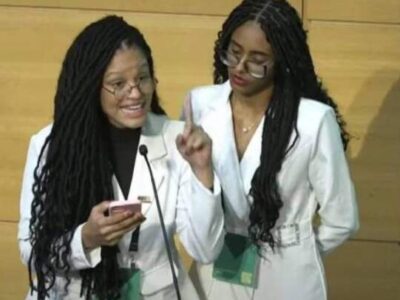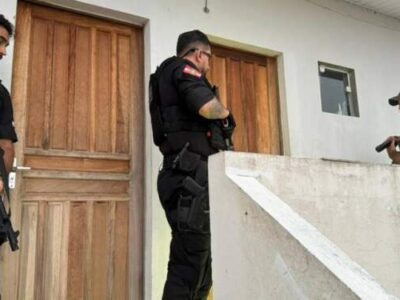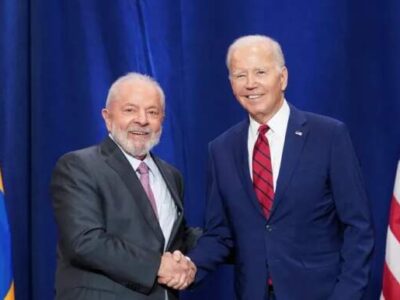
Após duas horas reunido com o presidente do Senado, Renan Calheiros (PMDB-AL) e líderes dos partidos, o presidente do Supremo Tribunal Federal, Ricardo Lewandowski, definiu o rito do julgamento final da presidenta afastada, Dilma Rousseff, que será presidido por ele.
Pelo calendário, o julgamento terá início na quinta-feira, 25 de agosto, às 9h e, segundo estima o ministro, deve durar no mínimo quatro dias. Os dois primeiros dias serão dedicados à apresentação de questões de ordem e à oitiva das oito testemunhas arroladas. A acusação, que abriu mão de quatro nomes, vai apresentar apenas duas testemunhas, enquanto a defesa manteve as seis a que tem direito.
Fim de semana
Um dos pontos mais polêmicos na definição do rito do julgamento foi em relação à realização de sessões no fim de semana. Pressionado pelo grupo aliado ao presidente interino Michel Temer, que insistiu que os trabalhos continuassem no sábado e no domingo, Lewandowski que não queria sessões no fim de semana, fez uma concessão. Decidiu que, se for preciso, a fase de oitiva de todas testemunhas poderá se estender até a madrugada de sábado.
O acordo para suspender a sessão após a oitiva das testemunhas e a expectativa de que isso ocorra na madrugada de sábado, no entanto, trouxe preocupação aos senadores da base de Dilma. Para Lindbergh Farias (PT-RJ) não vai dar tempo de ouvir todas as testemunhas dentro do prazo estimado por Lewandowski e o julgamento deverá ocupar também o fim de semana.
“Nós fizemos uma conta e se 40 senadores perguntarem a cada testemunha, esses 40 senadores significam oito horas e meia [para cada testemunha]”, disse, contrariado. “Nós não queríamos que esse julgamento adentrasse o fim de semana. Do jeito que foi feito, tudo indica que vai adentrar sábado e talvez odomingo. Há uma pressão do pessoal da base governista, argumentando uma viagem do Temer para a China. Ora, julgamento de uma presidente da República não pode ser assim”, afirmou.
O líder do DEM, senador Ronaldo Caiado (GO), tem a mesma percepção de que não será possível aos senadores concluírem a oitiva das testemunhas antes do fim de semana. “Nós definimos o prazo final das testemunhas até a madrugada de domingo para segunda-feira. E na segunda a presidente terá todo o espaço para iniciar aqui, às 9 horas da manhã, o seu pronunciamento e as respostas a todas as perguntas formuladas”, prevê. Para Caiado, o mais provável é que o julgamento termine entre a noite de terça-feira e a manhã de quarta (31).
Oitiva de Dilma
Esgotada essa etapa, na segunda-feira (29) os trabalhos já seriam retomados com a oitiva da presidenta afastada Dilma Rousseff que, pela primeira vez, virá pessoalmente ao Senado se defender das acusações de que teria cometido crime de responsabilidade. Dilma terá 30 minutos para fazer sua defesa mas, segundo Lewandowski, esse tempo poderá ser prorrogado pelo tempo que for necessário.
A partir daí, o presidente do STF, senadores, acusação e defesa terão cinco minutos cada para fazer perguntas a Dilma. Não haverá limite de tempo para resposta da petista.
Ao final da participação da presidenta afastada, acusação e defesa terão uma hora e meia para debater o processo. Serão permitidas ainda réplica e tréplica de uma hora. Se a acusação não utilizar a réplica, não haverá tempo para a tréplica da defesa.
A partir daí senadores inscritos também poderão discutir o processo. Cada parlamentar terá dez minutos.
Na etapa seguinte, o presidente do Supremo lerá um resumo do processo com as fundamentações da acusação e da defesa. Dois senadores favoráveis ao impeachment de Dilma e dois contrários terão cinco minutos cada para encaminhamento de votação.
Após o encaminhamento, Lewandowski fará aos senadores a seguinte pergunta: “Cometeu a acusada, a senhora presidente da República, Dilma Vanna Roussef, os crimes de responsabilidade correspondentes à tomada de empréstimos junto à instituição financeira controlada pela União e à abertura de créditos sem autorização do Congresso Nacional, que lhes são imputados e deve ser condenada à perda do seu cargo, ficando, em consequência, inabilitada para o exercício de qualquer função pública pelo prazo oito anos?”
Votação
A votação será nominal, via painel eletrônico. Se pelo menos 54 dos 81 senadores votarem a favor do impeachment, Dilma será definitivamente afastada e ficará inelegível por 8 anos a partir do fim de 2018, quando se encerraria o seu mandato. Caso esse mínimo de votos não seja alcançado, o processo é arquivado e a petista reassume o mandato.



















MESSAGE FROM THE PRESIDENT OF THE REPUBLIC DILMA ROUSSEFF
TO THE FEDERAL SENATE AND THE BRAZILIAN PEOPLE
Brasília, 16th of August 2016
I address myself to the Brazilian people and to the Honorable Senators to once again express my duty with democracy and with the necessary measures to overcome the political impasse that has already caused so much damage to the Country.
My return to the Presidency, through the decision of the Federal Senate, would mean the assertion of the Democratic State of Law and would contribute decisively to the unveiling of a new and promising political reality.
My responsibility is a great one. During my journey to defend myself from impeachment I came closer to the people, I had the opportunity to hear their support, to receive their kindness. I also heard harsh critics against my government, to errors that were committed and to measures and politics that were not adopted. I humbly accede these critics with a certain determination that we may construct a new path.
We must strengthen democracy in our Country and, for this, it will be necessary that the Senate stops the current impeachment process, recognizing, against irrefutable proof, that there was not any form of responsibility crime. That I am innocent.
According to presidentialism foreseen in our Constitution, political distrust is not enough to remove a President. A responsibility crime has to be confirmed. And it’s clear that there hasn’t been such a crime.
It’s not legitimate, according to the desires of my accusers, to remove the Head of State and of the government because of the “entirety of work performed”. The ones who remove the President because of the “entirety of work performed” are the people and, only the people, through elections.
Because of this, we affirm that, if the impeachment process is concluded without responsibility crime, we will have a coup d’état. The electoral assemblage of 110 million voters would be replaced, without the expected constitutional support, by an assemblage of 81 senators. It would be an unmistakable coup followed by indirect elections.
Instead of this, I understand that the solution to the political and economic crises that we face depends on the public vote through direct elections. Democracy is the only way to the construction of a Pact for National Unity, Development and Social Justice. It’s the only means to come out of the crises we presently face.
Because of this, it is important that we assume our clear responsibility with a Plebiscite and through Political Reform.
We all know that there is an impasse generated by the exhaustion of the political system, that is, by the excessive number of political parties and by the questionable political practices, whereas both require a profound transformation according to the existing rules.
I am convinced of the need and I will give my unrestrictive support to convoke a Plebiscite, with the objective of consulting the population about the anticipated realization of elections, as well as about a political and electoral reform.
We should concentrate our efforts so that an ample and profound political reform is conducted, establishing a new institutional framework that overcomes the fragmentation of political parties, encourages the financing of electoral campaigns, strengthens the loyalty of political parties and that gives more influence to the voters.
The complete restoration of democracy demands that the population decides which is the best path to amplify the governability and to improve Brazilian political and electoral system.
We should build, for this, an ample National Pact, based on free and direct elections, that involves all Brazilian citizens. A Pact that strengthens the values the Democratic State of Law, national sovereignty, economic development and social conquests.
This Pact for National Unity, Development and Social Justice will permit the pacification of the Country. The appeasement of spirits and the cooling down of passions should overlap all and whichever feeling of disunity.
The transition to this new democratic moment entails that an ample dialogue is opened between all living forces of the Brazilian Nation who, with a clear conscience of what really unites us, as a whole, is Brazil.
Dialogue with the National Congress, so that, collectively and responsibly, we can seek the best solutions for problems that the Country faces.
Dialogue with society and social movements, so that the demands of our population are fully answered through consistent and efficient politics. The productive forces of employers and workers should participate actively in the construction of proposals to regain growth and for the elevation of the competiveness of our economy.
I reaffirm my commitment with integral respect to the Citizens’ Constitution of 1988, with emphasis to the individual and collective rights and guarantees that are established in it. Our motto persists being “not a right less”.
The social politics that have transformed the lives of our population, ensuring opportunities for everyone while at the same time, valuing equality a diversity, should be preserved and renewed. The richness and the power of our culture should be promoted as a fundamental element of our nationality.
Generating more and better jobs, strengthening the public health system, amplifying access and elevating the quality of education, securing the right to housing and expanding urban mobility are priority investments for Brazil.
All economic variables and political instruments must be channeled accurately so that the Country can resume growth and the create new jobs.
This is essential because, ever since the beginning of my second term, measures, actions, and reforms necessary for the Country to face a severe economic crisis were blocked and the “bombastic guidelines” were imposed, under the irresponsible supposition of “the worse, the better”.
There was an obsessive effort to wear out the government, notwithstanding the harmful outcomes to the population. We can overcome this moment and, together, pursue economic growth and stability, the strengthening of our national sovereignty and the protection of the pre-salt layer, of our natural resources and of the mining industry.
It’s of fundamental importance to continue our struggle against corruption. This is a non-negotiable commitment. We won’t accept any arrangement in favor of the impunity of those who, deemed guilty, and having had full exercise to contradict and take use of a broad defense, have committed illegal actions or deeds of improbity.
Brazilian people and Senators, Brazil experiences one of the most dramatic moments of its history. A moment that requires courage and clarity in each of our objectives. A moment that does not tolerate omissions, mistakes or a lack of commitment with the Country.
We shouldn’t permit that an eventual break in the democratic order based on an impeachment process that lacks a responsibility crime fragilizes our democracy, with the sacrifice of the rights that we have guaranteed in the Constitution of 1988. We unite our forces and aspirations in defense of democracy, to be on the right side of History. I am proud to be the first woman elected president of Brazil. I am proud to say that, all these years, I have fulfilled my term in a dignified and honest manner. I honored the votes that I received. In the name of these votes and in name of all the people of my Country, I will fight with all the legal instruments that are at my disposal to preserve democracy in Brazil.
At this point everyone knows that I haven’t committed a responsibility crime, for there is no crime. Every action I made were legal actions, necessary actions, actions of the government. Identical actions were executed by the presidents that preceded me. It wasn’t a crime then, and neither is it a crime now.
In my life, there will never be found any register of dishonesty, cowardice or treason. In contrast to those who began this unjust and illegal process, I don’t have secret accounts abroad, I’ve never diverted a single cent of public assets for my own personal enrichment or of third parties and I haven’t received bribes from anyone.
This process of impeachment is a fragile one, legally inconsistent, an unjust process, exacerbated against an honest and innocent person. Senators, what I ask of you is that you don’t do the blatant injustice of condemning me for a crime that I didn’t commit. There isn’t a more devastating injustice than to condemn an innocent.
Life has taught me the most profound meaning of hope. I’ve endured jail and torture. I wouldn’t like to withstand fraud and the most despicable injustice.
My hope persists because it also is the democratic hope of the Brazilian people, who elected me twice as their President. The ones who should decide the future of the Country is our people.
Democracy has yet to win
Dilma Rousseff